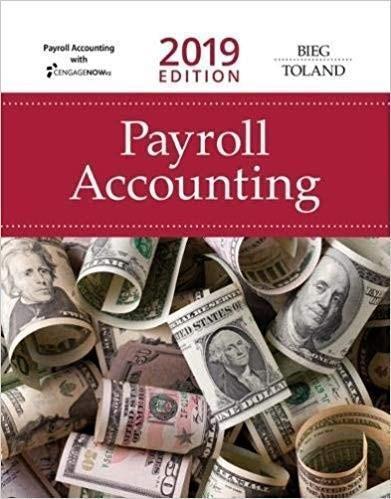Question
3. Which of the following do you prefer most if you ex pect 7% annual rate of return? A. Pay $100 now and receive $60
3.
Which of the following do you prefer most if you ex
pect 7% annual rate of return?
A.
Pay $100 now and receive $60 today and $60 in four
years.
B.
Pay $200 now and receive $12 every year, forever.
C.
Pay $50 annually for five years, starting now, and
receive $30 annually for twenty years, starting
the end of the sixth year.
D.
Pay $50 now and receive $9 every other year, foreve
r, with the first payment being next year.
4.
In Aug. 2007, Irene Engels borrowed $50,000, and sh
e borrowed another $50,000 in Aug. 2008, for
Education. Her student loan has an annual interest
rate of 2% compounded monthly. Irene didn't
make any payments on her student loan until she sta
rted a lucrative job in Sep. 2009, when she started
to make a payment of $1,000 at the end of every mon
th. Now bonus time is coming near. For Jan.
2010, she plans to make another $1,000 payment (her
5
th
) and also apply her bonus to the loan. How
big must her bonus be so that she will have complet
ely paid-off the loan at the end of this Jan.?
5.
You and two friends are considering to buy a house
after graduation. You can get a 15-year fixed-
rate mortgage with 5% interest rate if you make a 2
0% down payment on the house. You will split
the monthly mortgage payment equally between the th
ree of you. Each of the three of you can afford
to contribute up to $1,000 per month towards the mo
rtgage payment. You each have $10,000
available towards the down payment. How expensive
a house can you afford to buy?
6.
You plan to retire 33 years from now. You expect t
hat you will live 27 years after retiring. You wan
t
to have enough money upon reaching retirement age t
o withdraw $180,000 from the account at the
beginning of each year you expect to live, and yet
still have $2,500,000 left in the account at the ti
me
of your expected death (60 years from now). You pl
an to accumulate the retirement fund by making
equal annual deposits at the end of each year for t
he next 33 years. You expect that you will be able
to earn 12% EAR per year on your deposits. However
, you only expect to earn 6% EAR per year on
your investment after you retire since you will cho
ose to place the money in less risky investments.
What equal annual deposits must you make each year
to reach your retirement goal
Step by Step Solution
There are 3 Steps involved in it
Step: 1

Get Instant Access to Expert-Tailored Solutions
See step-by-step solutions with expert insights and AI powered tools for academic success
Step: 2

Step: 3

Ace Your Homework with AI
Get the answers you need in no time with our AI-driven, step-by-step assistance
Get Started


